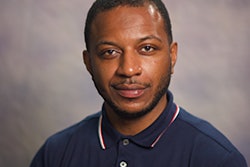Dr. Miltonette Craig, an assistant professor of criminal justice sciences at Illinois State University, wants to know why police violence happens and how officers justify racially biased incidents to themselves and others.
When Craig was a student at Georgia State University’s College of Law, she says she learned to ask, “What do law books say and how do we put this into practice?” But it wasn’t until she went back to school to study criminal justice that she got to ask deeper questions prompted by her time in court, such as “Why does crime happen? Who makes the law? How do we respond to crime when it happens?”
After she earned her law degree, she worked in the Florida court system for three years, First as a law librarian, then as a judicial assistant and, finally, as a law clerk. Wanting to explore the gender and racial patterns she had witnessed, Craig went on to earn her master’s at Florida International University. Then, an adjunct teaching position at Nova Southeastern University inspired her to earn her Ph.D. at Florida State University. There, she participated in the Florida Education Fund’s McKnight Doctoral Fellowship for minority Ph.D. students, which offered professional development, mentorship and a sense of community. She joined the faculty at Illinois State University in 2018.
Craig’s dissertation research focused on police in Missouri. There, police agencies are required to file a report on the demographics of whom they’ve stopped – with the option to submit an explanation for why their numbers look the way they do, often with minorities overrepresented. Craig mined those explanations for qualitative data and came across “racially coded language” and rationales that were “outright offensive,” she says.
Oftentimes she found herself thinking, “Oh my god, they put this in a government document?”
Her next project will explore publicly available complaints against police in Philadelphia.
Craig says her scholarship — which focuses on policecommunity relations and the criminal justice system — is personal, sometimes painful.




















